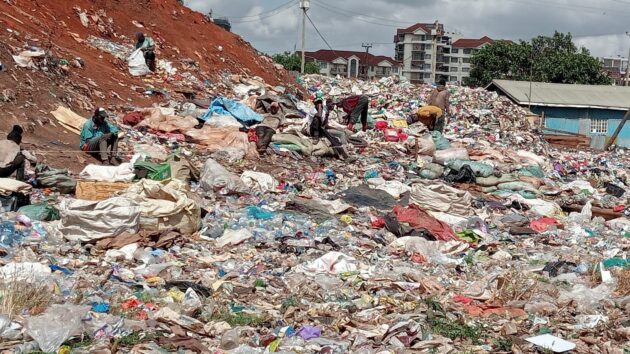
Kenya Launches Responsible Sourcing Drive to Protect Waste Pickers » Capital News
NAIROBI, Kenya, Jul 11 – The Circulate Initiative, a global non-profit organization dedicated to addressing ocean plastic pollution in emerging markets, has officially launched the first African implementation of its Responsible Sourcing Initiative in Kenya, marking a critical step in tackling systemic human rights challenges faced by informal waste workers in the plastics recycling value chain.
Funded by The Coca-Cola Foundation and the IKEA Foundation, the Kenya project is being implemented in partnership with Nairobi-based recycler Mr. Green Africa. It will roll out the Harmonized Responsible Sourcing Framework the world’s first global standard for responsible sourcing of recycled plastics with selected local suppliers, with Ethiopia set to follow in 2026.
The expansion to Africa signals a major regional milestone for the Responsible Sourcing Initiative, a global programme that brings together brands, recyclers, investors, and waste worker organizations to improve conditions and accountability in plastic waste recovery.
“Our launch in Africa is a significant milestone for the Responsible Sourcing Initiative,” said Annerieke Douma, Senior Director of Programs at The Circulate Initiative.
“The Kenyan project is the first step towards scaling responsible sourcing practices across Africa aimed at protecting workers who are at the frontlines of the fight against plastic pollution.”
The move comes at a critical time for Kenya. The country generates an estimated 983,000 tonnes of plastic waste annually, with only 8% recycled, according to the International Union for Conservation of Nature (IUCN).
The bulk of this waste is either dumped in landfills or left uncollected, despite the pivotal role played by informal waste pickers an estimated 46,000 of whom are registered with the Kenya National Waste Pickers Welfare Association.
These informal workers are often the first link in the plastic recycling chain, yet they routinely operate under precarious and unsafe conditions with minimal recognition or protection. The baseline assessment conducted by The Circulate Initiative in May this year found that many waste collectors in Mr. Green Africa’s supply chain continue to face low pay, hazardous working environments, and poor access to social and financial services. Despite these challenges, most were aware of their rights and open to organizing through unions and associations.
“The baseline assessment in Kenya highlighted the need for a systems-level approach to responsible sourcing, with waste pickers still facing routine discrimination and lack of formal recognition,” said Douma.
“Partnering with the Kenya National Waste Pickers Welfare Association and other grassroots groups will be key to ensuring that solutions are grounded in lived experience.”
Carlos Pagoaga, President of The Coca-Cola Foundation, emphasized the need to support those at the base of the recycling system.
“Informal waste workers are critical to our efforts to build a more sustainable future and help reduce packaging waste. We are proud to support the Responsible Sourcing Initiative, which demonstrates the power of collective action at scale to ensure the people behind our recycling efforts are recognized and protected.”
At the centre of the initiative is Mr. Green Africa, a Kenyan company that integrates informal waste workers into a technology-enabled supply chain. Keiran Smith, the company’s Co-Founder and CEO, said the project would help increase transparency, expand their network, and ultimately improve working conditions for waste collectors.
“By joining the Responsible Sourcing Initiative, we can increase the supply of responsibly sourced recycled plastic in Africa while improving livelihoods and conditions for these workers,” said Smith.
To scale its impact beyond Kenya, The Circulate Initiative has announced the formation of the Responsible Sourcing Network Africa (RSNA), a regional platform that will bring together stakeholders from Kenya, Ethiopia, Egypt, Nigeria, Algeria, Djibouti, and Morocco. The network will facilitate training, foster collaboration, and inform inclusive policy development using lessons from the Kenya pilot.
Kenya is now the fourth country to join the global Responsible Sourcing Initiative, following successful projects in India, Indonesia, and Viet Nam. Across all markets, the programme aims to improve the lives of 50,000 informal waste workers and secure commitments from at least 50 global stakeholders to align with the Harmonized Framework, with the goal of producing 100,000 tonnes of responsibly sourced recycled plastic.